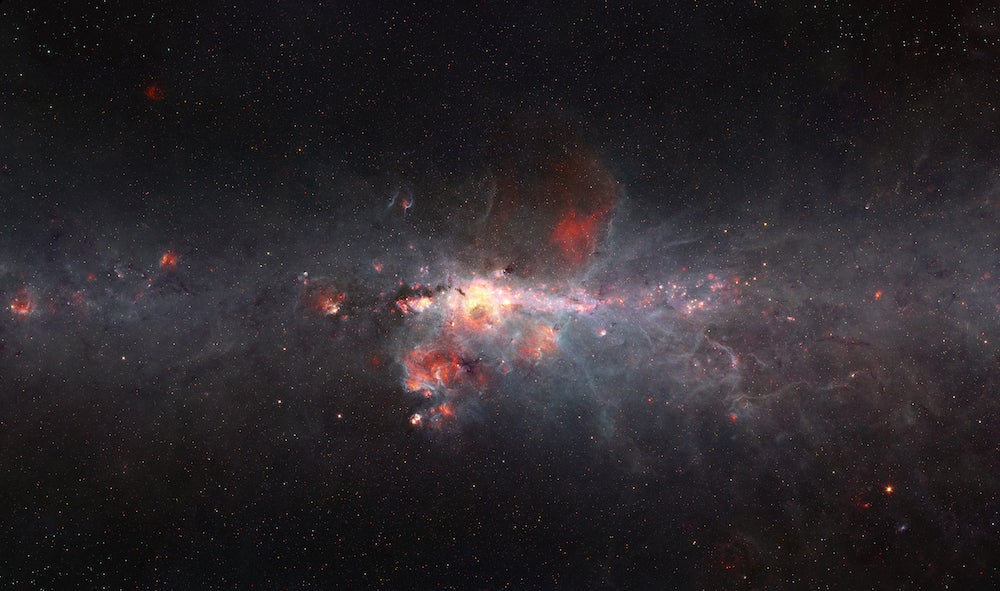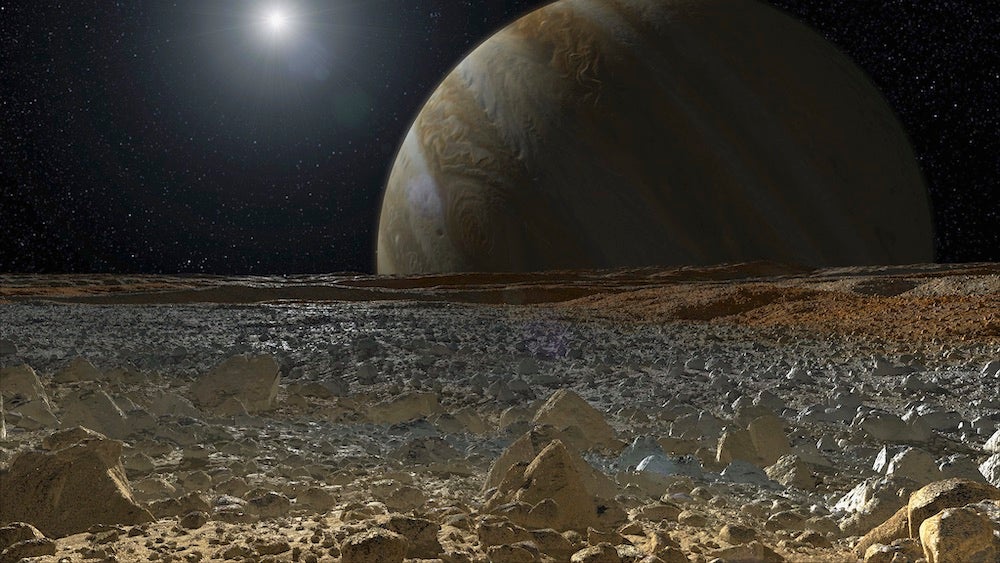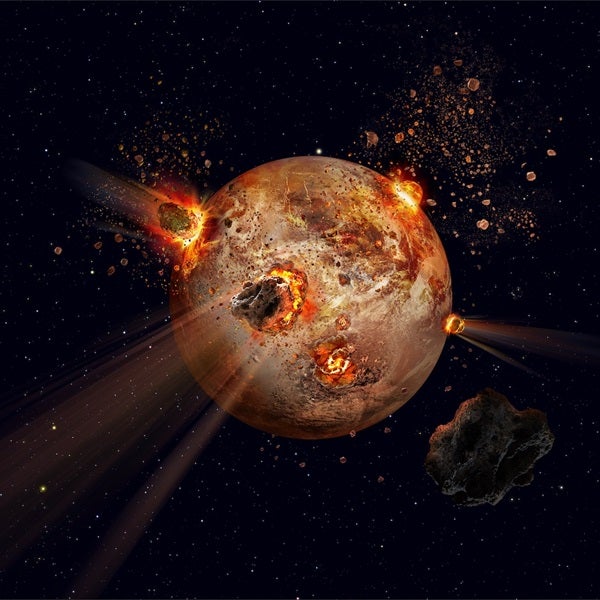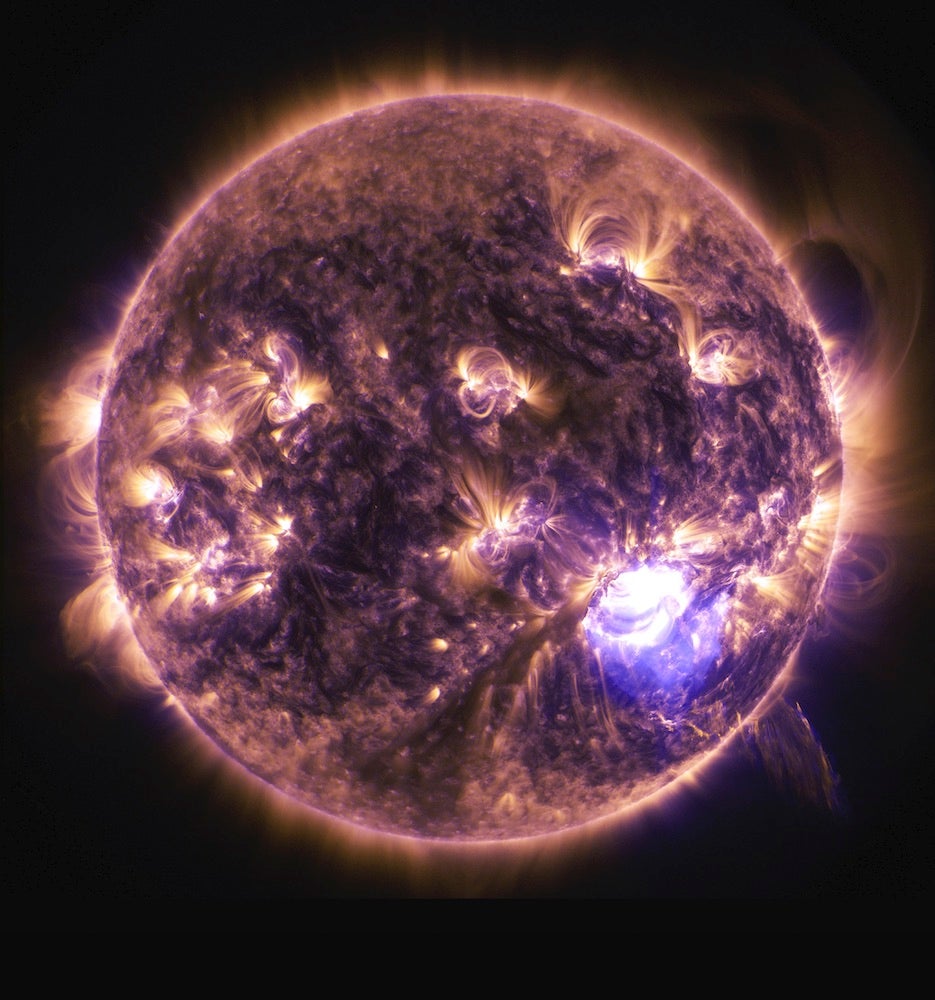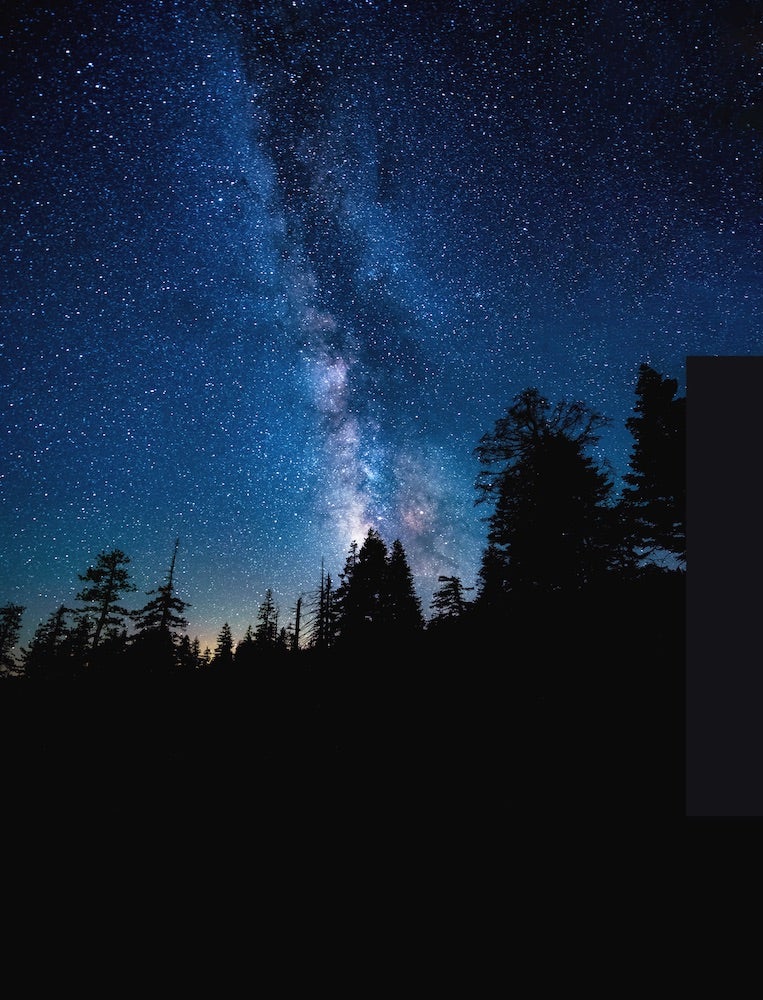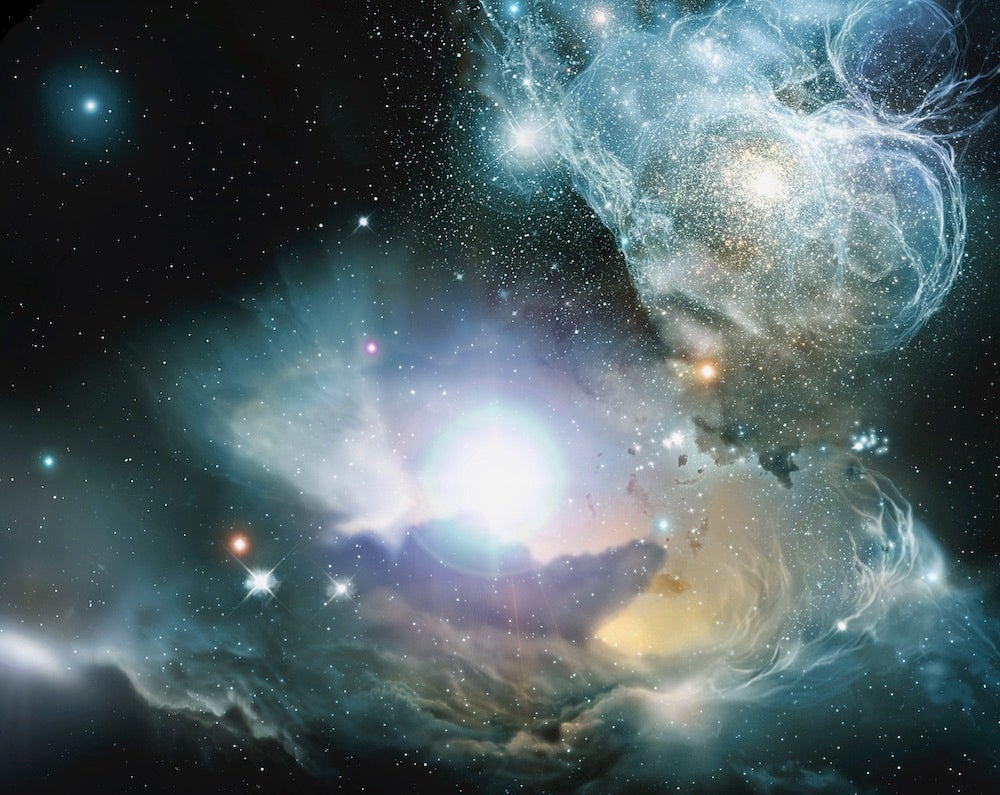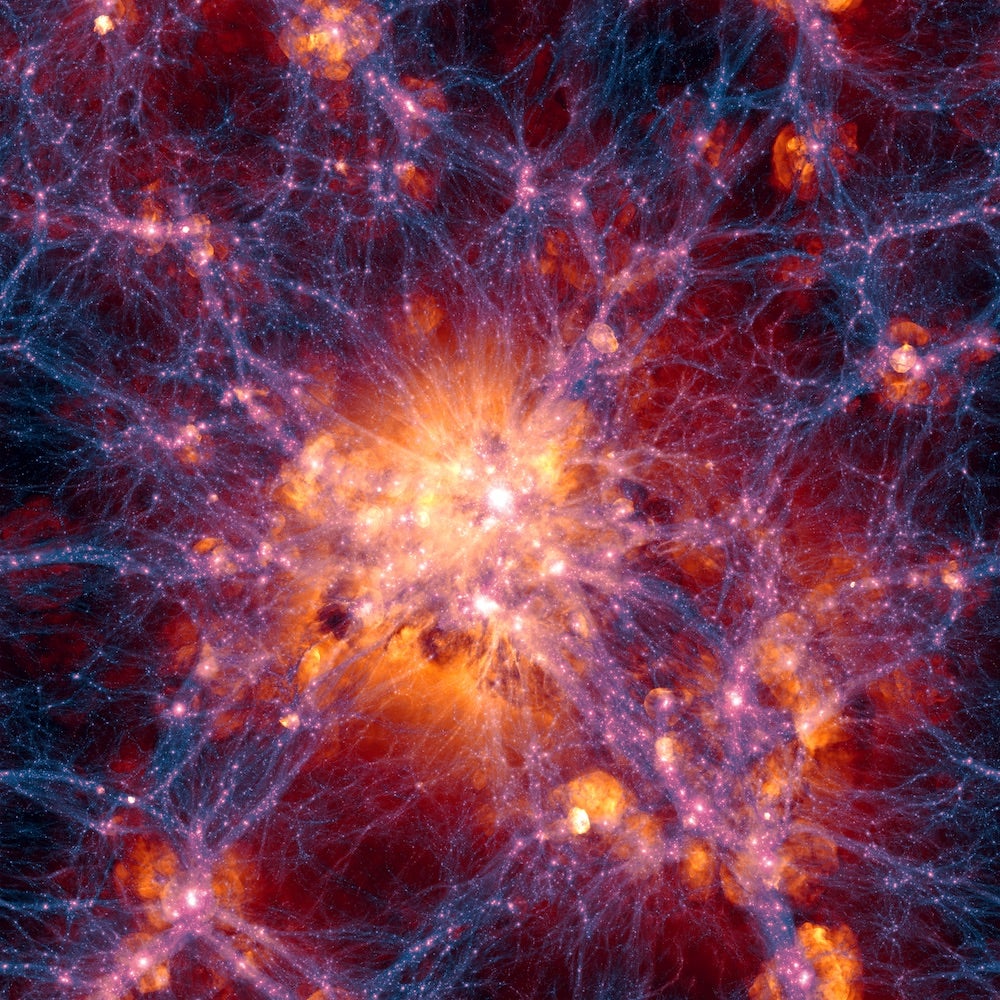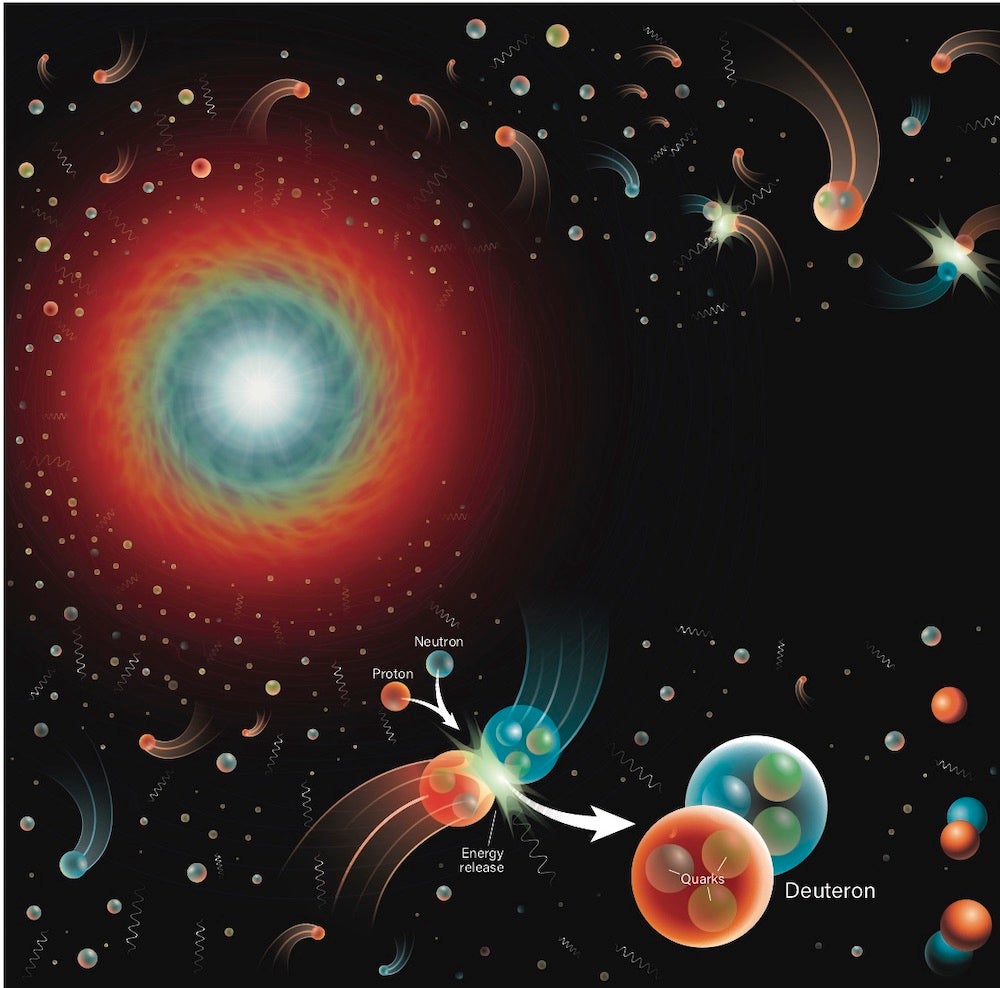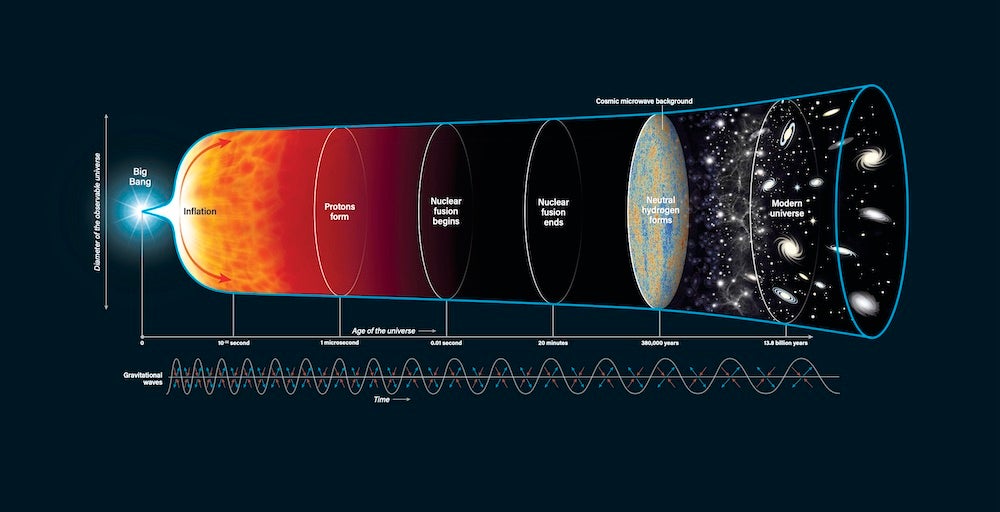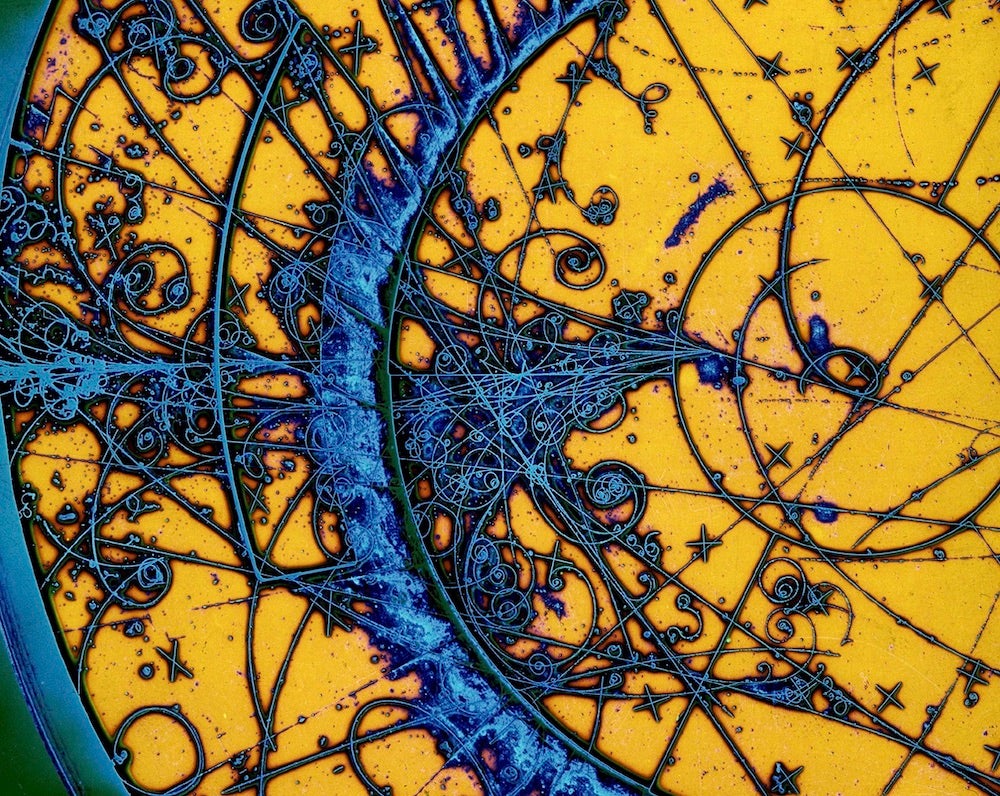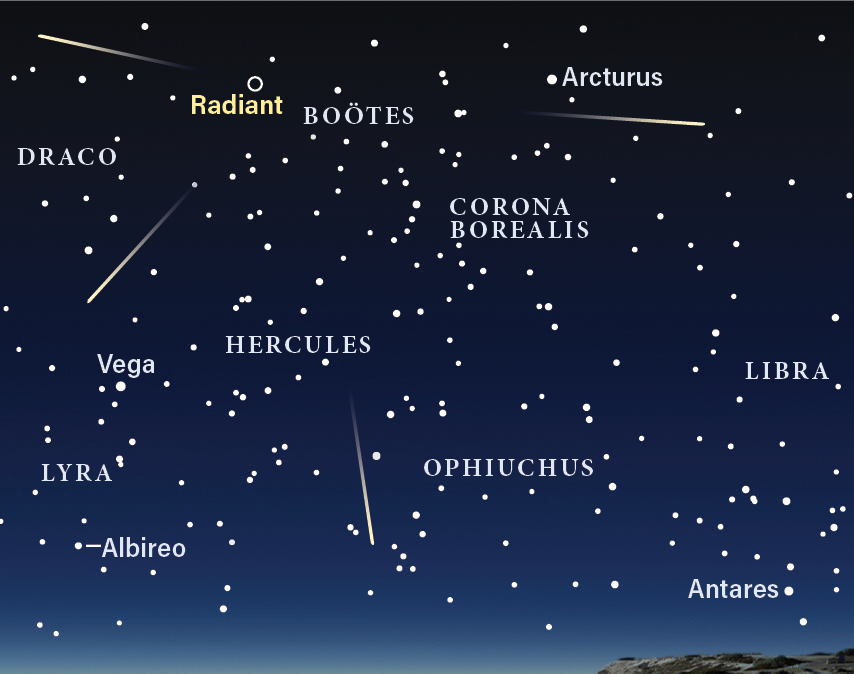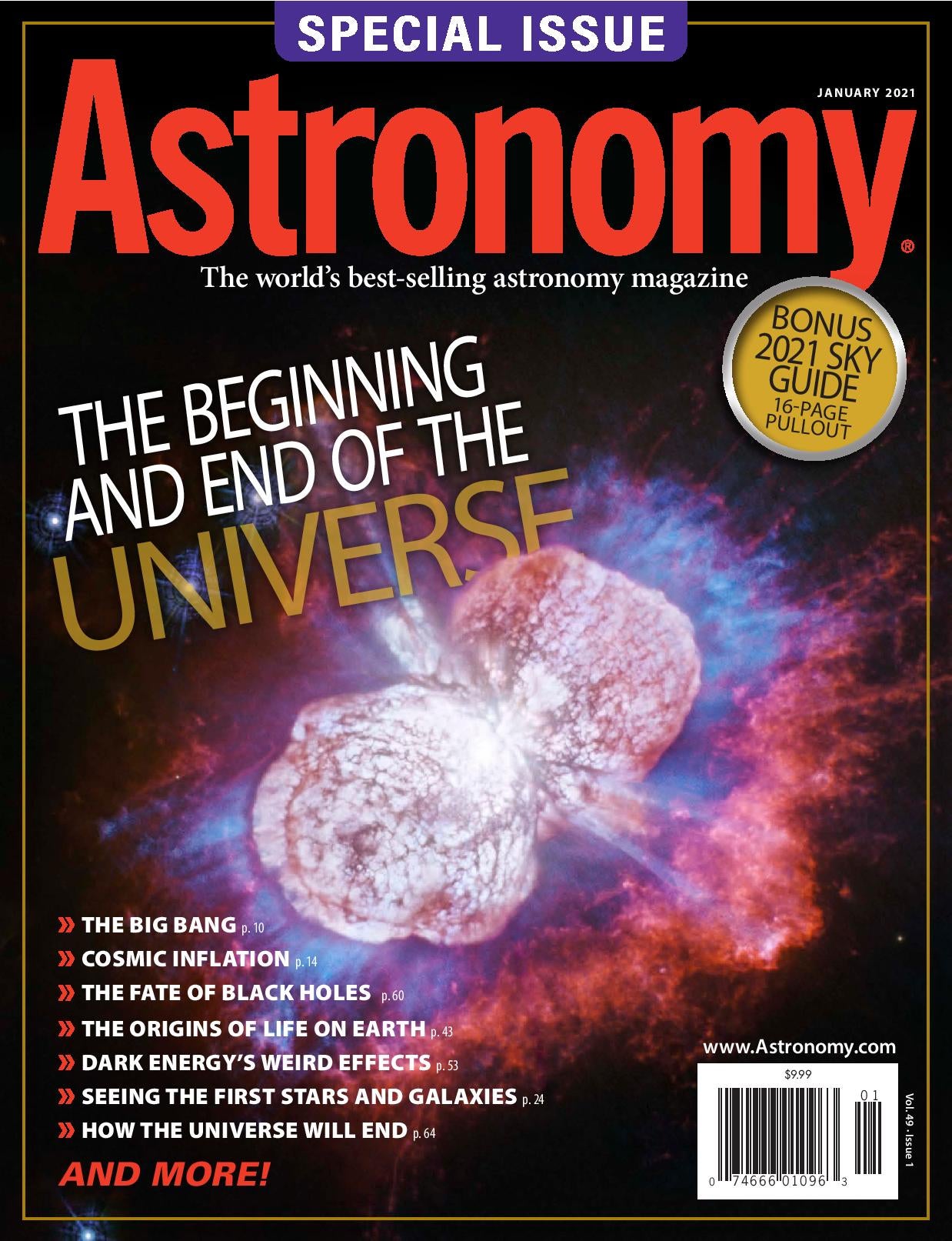
January 2021
The world's best-selling astronomy magazine offers you the most exciting, visually stunning, and timely coverage of the heavens above. Each monthly issue includes expert science reporting, vivid color photography, complete sky coverage, spot-on observing tips, informative telescope reviews, and much more! All this in an easy-to-understand, user-friendly style that's perfect for astronomers at any level.
Features
It began with a bang
Our universe’s earliest moments are the hardest to explore. But they hold the key to understanding the cosmos.
Inflating the universe
In a trillionth of a trillionth of a trillionth of a second, our universe underwent a growth spurt that shaped the structure we see today.
The emergence of matter
The universe forged the first elements within minutes of its birth through the process of Big Bang nucleosynthesis.
The cosmic dark ages
For millennia, a hydrogen fog permeated the universe, trapping light.
The first stars are born
They lived fast, died young, and seeded the cosmos with material for future generations.
How to build a galaxy
About 13 billion years ago, our galaxy formed in the wake of the Big Bang.
Our solar system’s origin
Researchers know how the Sun shines — but how did it form?
The origins of life on Earth
An asteroid impact may have killed the dinosaurs, but earlier cosmic strikes could have helped spawn life in the first place.
Looking for life in the universe
Possibilities for extraterrestrial life seem limitless, but a few scientific rules can help us find it.
The Big Crunch vs. the Big Freeze
Astronomers once thought the universe could collapse into a Big Crunch. Now most agree it will end with a Big Freeze.
The mystery of dark energy
The universe isn’t just expanding, it’s accelerating.
Exploring the shape of space-time
The afterglow of the Big Bang reveals the geometry of the universe.
How black holes die
Long after the last stars fade, black holes will herald the end of the universe with a spectacular show of fireworks.
A cold, lonely death
Everything — from creatures to stars to black holes — will eventually decay into nothingness.

